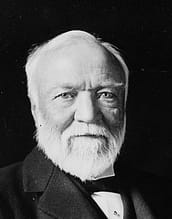Investor cost trap management
How superior investors avoid cost traps covers boosting investment returns and increased bottom lines with cost control. In fact, lower costs can increase returns faster than anything else investors can do! To boost returns, effective cost managers must deal with a mind numbing number of complications. Investors learning the cost management skills of superior investors can bring home boosted returns.
What you learn from: Lesson 9 -
How superior investors avoid cost traps
Frequently Asked Questions about
How superior investors avoid cost traps
How do investors manage costs?
Superior investors first, last, and always minimize costs with active management. Check on the 11 Costs Superior Investors Manage:
1. Commissions,
2. Administration fees,
3. Maintenance fees,
4. Inactivity fees,
5. Trading expense ration or ratios fees,
6. Mutual fund fees,
7. Trailer fees,
8. Transfer fees,
9. Withdrawal fees,
10. Foreign exchange fees,
11. ETF fees.
Managing costs means reviewing each and every fee and cost. Ask for each fee to be waived or lowered. Find alternative investments for any that refuse. Lower costs to increase returns. By learning to assertively manage costs, any investor improves their bottom line. See more details, discussion and FAQ in lesson.
What is an investment value trap?
Investors caught in a value trap are in a no return or dead money investment. That is a stock position or investment with no price increase and pays no return. The money invested is dead! Most often, value traps catch investors that thought they were buying undervalued shares. But instead, they bought a poorly run or dead end, stuck in a rut, business making little or no progress. At times, unfavorable markets, obsolescence or some other limit can stall a company. However, without a positive outlook or expectations, the share price stagnates, leaving the investor caught in a no return value trap. For more details, discussion and FAQ see the lesson.
Can investors control costs?
Cost control is essential for investment success. Lower costs increase investment returns faster than anything else you can do! And getting a cost lowered can pay off for your investing lifetime. You get very well paid for any time and effort needed to lower costs. Making that happen means examining every cost and fee from all sources. Ask why each fee exists and how to have it waved. For any you can’t get removed, ask how to make it lower. Get every cost as low as possible including considering alternative services and suppliers. Your detailed fee review lets you consider and question the value of each one. For value, fees are not a bad thing. But it is worth the time to question and eliminate all you can. For more details, discussion and FAQ see the lesson.
Core Content
How superior investors avoid cost traps
First, last and always superior investors manage costs
Watch the costs and the profits
will take care of themselves.
More about Andrew Carnegie, Scottish-American Industrialist.

Andrew Carnegie
Industrialist
Before profits comes cost control!
The fastest return increases in investing come by lowering costs. That is why superior investors first, last and always manage costs to keep them at a minimum. Costs include fees and commissions of all sorts from all sources. Wherever costs come from, we want fewer of them and the ones with have, we want lower!

Protesting is not enough, investors must do!
Cost management and control begins with an attitude that we are going to get and keep costs as low as possible. Costs include, foreign exchange fees, administration fees, maintenance and inactivity fees, ETF fees, trading expense ration or ratios, mutual fund fees, trailer fees, transfer or withdrawal fees. These and numerous more all wait to ambush investors. Getting those costs down or gone is a basic investment management skill that delivers a lifetime of rewards for every fee shaved or stopped.
Dead money has costs and hurts portfolio performance
Investors can miss the investment cost of dead money. Money is dead when it is not working for you. That includes money parked in non-performing investments. When you realize an investment does not perform for you, get out! Sell and get the money to work paying you a return. Do this as soon as you can after identifying a dead investment.
Value trapped money needs to be rescued!
Value traps are stock positions that do not pay and do not show any increases in value. As they do not pay and do not grow, your money is dead or at least paralyzed!
Most often getting caught in a value trap is a misread from finding an undervalued stock that is not in fact undervalued. When investors buy shares thinking they are picking up undervalued shares they can end up owning part of a poorly run company. It may be a dead end business at the end of life, or one making little or no progress in the market. Bad markets, old technology or something else limits their outlook. It can leave little or no expectation of improvement. If caught in a value trap, sell out and revive your money! Better yet, learn to research well before investing to avoid any other value trap.
Cost management power boosts investment returns
The rocket fuel for fast portfolio performance improvement is cost control and management. The impact of effective cost management is positive and immediate for improved investment returns and bottom line growth. And cost reductions bring a lifetime of improved performance.
Questioning any and all costs can pay very well for any investor that makes the effort. Asking why each time you see a fee or as soon as any fee gets applied helps some fees go away. The questions make any advisor wary of adding fees.
But don’t stop at questioning. Also ask for fees to be waived or simply to have no fee. At a minimum ask for a reduction. Ask how to avoid or lower any fee. By seeking an explanation of all fees, you keep your advisor aware you are carefully watching costs.
Question the value you get for any fee. Do you think your advisor delivers value for the fees or could you do as well by yourself? Don’t regard all fees as bad or unreasonable. But to make sure you are getting value for paying them.
Costs can trap money to crash and burn any investment
It is easy to understand that hidden costs raise trust issues for financial services. Obscuring or hiding costs has a long financial service history. Hidden costs raise credibility issues but fat profits justifies continuing the practice. So don't expect any changes.
Regulation changes drag more disclosure out but hidden and obscured costs remain. The industry will fight to keep backward, bad anti-client strategies in place.
In some cases, financial advisors have put clients into ETF owning mutual funds. Those costs can be atrocious with clients paying layer upon layer of fees. There can be financial advisor fees, mutual fund fees, ETF fees and it can get worse yet! Trailer fees can rip off investors again when they sell! They make your money work for them but you only get the leftovers!
High costs choke stock market returns
To avoid hidden fees, investors need full, plain and clear disclosure of all fees and costs. Those fees pick your pocket and feed your distrust. Become an informed investor that exercises good cost control.
It seems the embedded commissions ripoff of financial service providers will continue forever. Profiting from double, triple and quadruple dipping justifies these built-in client rip-offs.
Stop advisors from feeding on your money. Don't buy investments with complex, hazy or impenetrable fees structures. The same applies to layered costs or trailer fees. If there are trailer fees, don't buy in.
Know you full cost and demand disclosure of all costs and fees
Be sure to get full, plain and clear disclosure of all advisor costs. Some have layers of fees that pick client pockets. Leave any such ripoff shops and find one that is up front about all fees charged.
Layered fees don't pass the smell test. Still, regulators remain asleep on this issue so don't expect any changes. To protect yourself, get all costs in writing from any advisor you have or are considering. Any that expresses reluctance or does not respond is the wrong person. Move on to one that will work for you. After all, it's your money, keep it working for you rather than for your advisor!
Superior investors know and control all costs including their advisor costs. Doing that is an absolute essential for stock market success. For example, eliminating a 2% cost can improve returns by 20% to 100%. And eliminating a recurring cost produces compounding improvements. That has a huge impact over a lifetime of investing. It can be the difference between being in an OK financial position and wealth!
Money making complications require investor attention
To avoid hidden fees, investors need full, plain and clear disclosure of all fees and costs. Those fees pick your pocket and feed your distrust. Become an informed investor that exercises good cost control.
Complicated, a hit song by Avril Lavigne, sang about relationship problems. But like love, finances and investing can also get complicated. In life and investing, having a plan can avoid the tangle of complications.
Markets and financial products present a complex mix to investors. As a result, those complications rank fourth on the investor mental block list. To cut through the complications, some help can clear a path through the maze. Once clear, investors can focus on learning simple ways to make money work.
Complications and high volume stock market noise can confuse and intimidate many investors. As Avril Lavigne asked in her song, Complicated, “Why do you have to go and make things so complicated?” A relationship with a boy, not investing, was on her mind but, “‘Cause life’s like this”, means both love and investing can have complications!
Often financial complications happen because lots of money gets made selling new investment products. Markets continue adding new and imaginative bait to attract investor money. The innovations will continue because financial services make so much money selling them. Your advisor may be extra well compensated for selling you them. Another conflict of interest if there ever was one.
Superior investors consider life and investing complications
Meryl Streep, Alec Baldwin and Steve Martin entertained us in their movie. They addressed the mix of life, families and relationships in, It’s Complicated. Complicated yes, but like life, investing needs a plan.
Meryl Streep used life and relationships as movie entertainment in, It’s Complicated. It explored relationship complications reminding us of the value of a plan. Plans work well for life and investing.
Keeping investing simple in a complex market takes some knowledge. And continual change brings endless new listings and products to market. All can pile on the confusions. Keeping up even challenges the specialists expected to master the new items.

Meryl Streep starred in the movie It's Complicated to entertain us with complications of life and relationships. As investors, we need a plan to deal with complications.
Avoid financial dangers and tests to enjoy stock market success
Financial services will always push new products into the market. Profits, cash flows and commissions from new products are fantastic! That is fantastic for the house and commission earners. But for investors the story may be less profitable. Sharp investors pass on new products until others test and prove them. Once products establish a record of performance, many years of opportunity will remain. Keep making money by staying with time-tested winners and strategies. Then, when new financial products become time-tested winners, prudent investors can buy in.

Being aware and able to manage costs are parts of avoiding financial dangers
Successful investors use their investor mind to remain calm and tune out market noise.
As none of the river of money generated by new financial products goes to investors, why play? Very few new listings quality as income investing grade. The best answer to such offers is no! Don't buy them or let your financial advisor put them in your portfolio.
Investors building long term wealth, ignore the new offering hype and sales pitch. Even when the buzz and media generate lots of racket and noise.
Pick the best and move beyond the rest
Taking a pass on all IPOs or new stock market listings is the easy way of passing on their so-so record. Few IPOs perform well from the time they go public. Leave the new listing rides and higher risk stumbles for investors willing to lose money.
By passing on IPOs you keep their drama and loss away from your portfolio and keep making money. Keep it simple to keep making money. There is no need to buy complex financial products to make money. Simple works best.
White Top Investor uses simple and straightforward methods to invest. Build wealth, enjoy growth and diversify for simple long-term success. Build your personal security and financial comfort plan.
Knowing investor mind games
The mental parts of investing, the psychological and emotional aspects, are investment essentials. Knowing and understanding those parts of investing, give superior investors a huge advantage.
And that opens the door to superior investment performance. Managing emotions well shows in investing results.

You can control your thoughts, feelings and behavior. You can manage them to your advantage. Training yourself to do that pays huge dividends in life and are important parts of the investor life.
Investors that control and manage thoughts, feelings and behavior have an advantage. Brain training to do that pays huge dividends.
Lessons on investor mind games
Irrational behavior in normal markets
10 paralyzing mental blocks of investors
Attached stubborn and helpless investor
Optimism and unrealistic minds of investors
Summary points Part II mind trap control
- Use your investor mind to control mind traps
- Learn before investing
- Learning overcomes the knowledge mind trap
- Know the cause and learn to manage trust mind traps
- Control the cost mind trap by managing all expenses and fees
- Learn to focus to know how to clear the complicated mind trap
- Investors, traders and speculators are different
- Market noise from trading and media can mislead
- See through the financial communication veil
- Watch for money traps built with words
- Know the suitability vs fiduciary service standards
- Build investing around a plan
- Low costs work best and deliver bottom line
Lesson Takeaway:
How superior investors avoid cost traps
Now you know:
Now, it’s your turn to apply the lesson:
How superior investors avoid cost traps
Begin applying your new knowledge at your own pace. Taking the time you need to understand the lesson, helps you master the material. Then you can apply what you learned to take another step in your development as a superior investor. Have a prosperous day!
Comment or question:
How superior investors avoid cost traps
You can email me at [email protected].
And subscribe for free to get White Top Investor lessons in your inbox!
Share: How superior investors avoid cost traps
You may like lessons related to:
How superior investors avoid cost traps
Learn how to begin building your investor mind here: The Investor Mind.
Mortal investors see immortal debt
Optimism and unrealistic investor minds
FED begins Quantitative Tightening
White Top Investor lesson links:
Brain Train for Investment Success
These Course name here lessons are from the White Top Investor 1st Guide - Developing Your Investor Mind that shares superior investor knowledge about developing an investor mind.
Lesson links:
White Top Investor
Site Notes & Page Links
The White Top Investor site changes and updates without end just as stock markets and investing continue to change without end. For free access and email updates for notification of changes and additions. The key White Top Investor pages, the home page, the cornerstone page and the contents and layout page are linked below. These pages have links to all other content on the White Top Investor site.
Home Page Link
Cornerstone Content - Investor Mind
Featured Image courtesy: Pexels
WhiteTopInvestor.com

